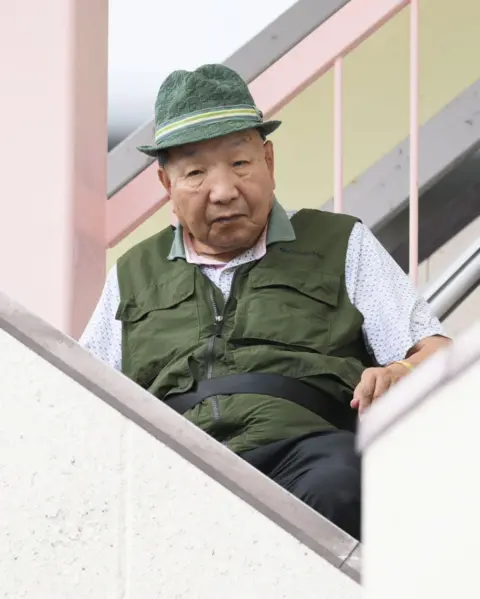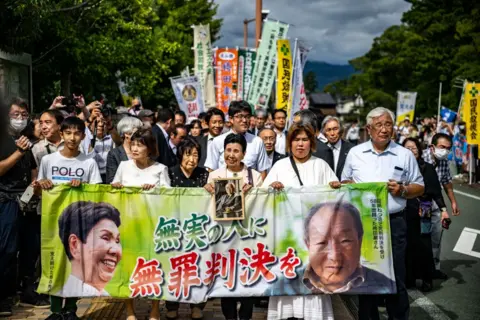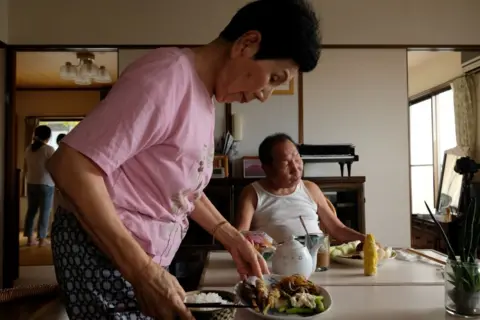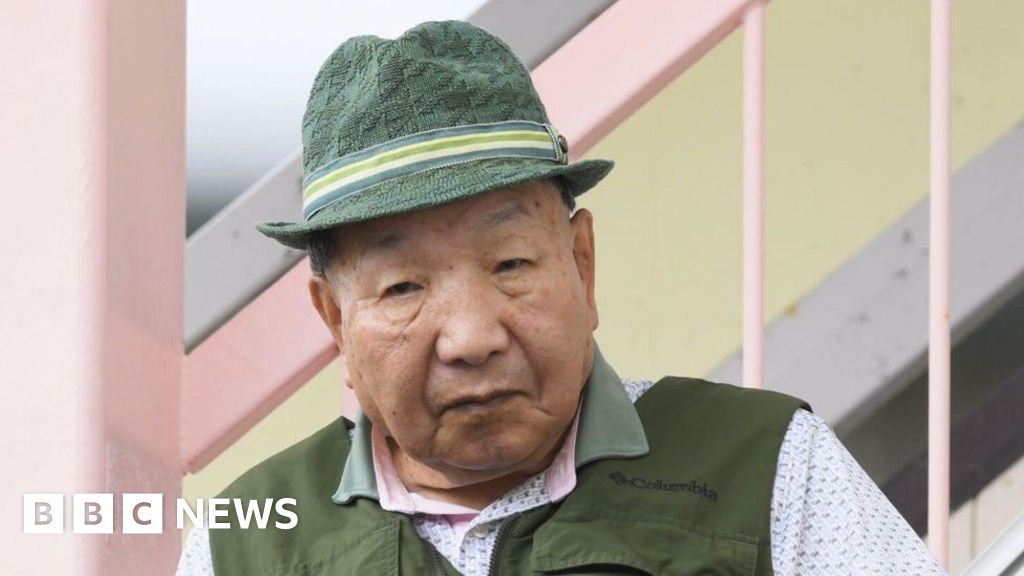 Reuters
ReutersThe world’s longest serving death row inmate, an 88-year-old man, has been acquitted by a Japanese court that ruled the evidence used against him was fabricated.
Hakamada Iwao, who has been on death row for more than half a century, was convicted in 1968 of murdering his boss, his wife and their two teenage children.
He was recently granted a new trial amid allegations that investigators fabricated evidence that led to his quadruple murder conviction.
However, after spending more than half a century on death row, Mr. Hakamada’s mental state had deteriorated significantly, and he was ultimately unable to attend the hearing where he was acquitted.
Hakamada’s case is one of Japan’s longest and most high-profile legal battles and has attracted widespread public attention, with around 500 people lining the Shizuoka courtroom on Thursday.
As the verdict was handed down, Hakamada’s supporters outside the courtroom shouted “Banzai,” an exclamation meaning “hurrah” in Japanese.
Hakamada was not in court as he had been excused from all hearings due to his deteriorating mental state.
He was released from prison in 2014 and has been living under the custody of his sister since his retrial was granted.
“Bloody” clothes found in miso tank
Hakamada, a former professional boxer, was working at a miso processing factory in 1966 when the bodies of his employer, his wife and two children were discovered in a fire at their home in Shizuoka, west of Tokyo. All four had been stabbed to death.
Authorities have accused Hakamada of killing his family, setting fire to their home and stealing 200,000 yen in cash.
Hakamada initially denied robbing and killing the victim, but later gave what was allegedly a forced confession after being assaulted and interrogated for up to 12 hours a day.
In 1968 he was convicted of murder and arson and sentenced to death.
 Getty Images
Getty ImagesThe decades-long legal battle finally focused on clothing found in a miso vat a year after Hakamada’s arrest – allegedly bloodstained – that was used to convict him.
But Hakamada’s legal team has long argued that DNA taken from the clothes did not match his, meaning the clothes may have belonged to someone else, and they have even suggested police may have fabricated evidence.
Their arguments were enough to convince Judge Hiroaki Murayama, who noted in 2014 that “the clothes did not belong to the defendant.”
At the time, Murayama said, “It has become clear to a considerable extent that the defendant is likely innocent, so it would be unjust to detain him any longer.”
Hakamada was subsequently released and a retrial was granted.
Because of the lengthy legal process, it took until last year for a retrial to begin and until Thursday morning for the court to hand down its verdict.
Although the DNA argument was rejected, the judge found credible another defense argument: that the red stains found on the clothing could not have been blood, because blood soaked in miso for a year would not have remained red on clothing.
The judge acquitted Hakamada and concluded that the main evidence presented by the prosecution had been fabricated.
 Getty Images
Getty ImagesHakamada’s lawyers and family say decades of detention, much of it in solitary confinement and under the constant threat of execution, have taken a toll on his mental health.
His 91-year-old sister Hideko had long campaigned for his release. When the retrial began last year, she expressed relief, saying, “Finally, a weight has been lifted from my shoulders.”
Retrials of death row inmates are rare in Japan, and Hakamada’s case marks only the fifth such case in postwar Japanese history.
Along with the United States, Japan is the only G7 country that still carries out executions, with prisoners notified just hours before their hanging.




